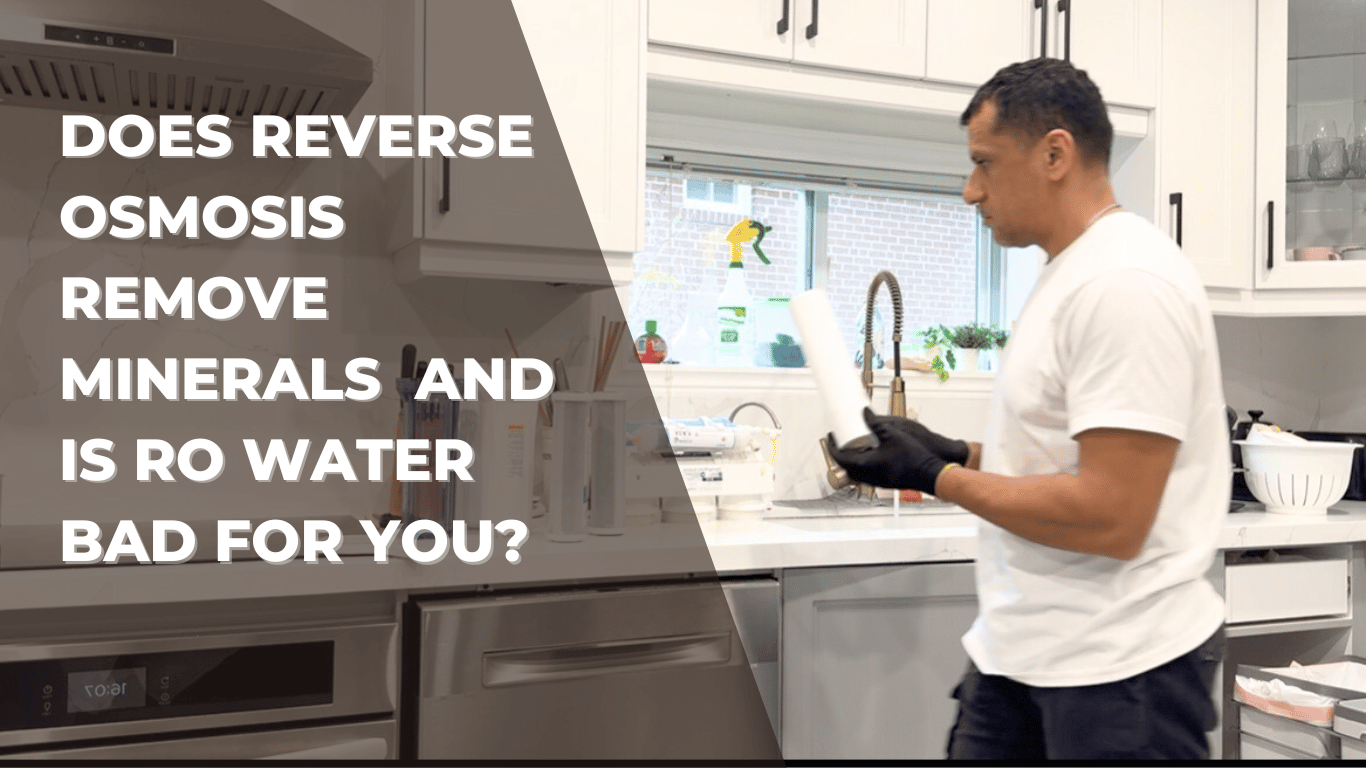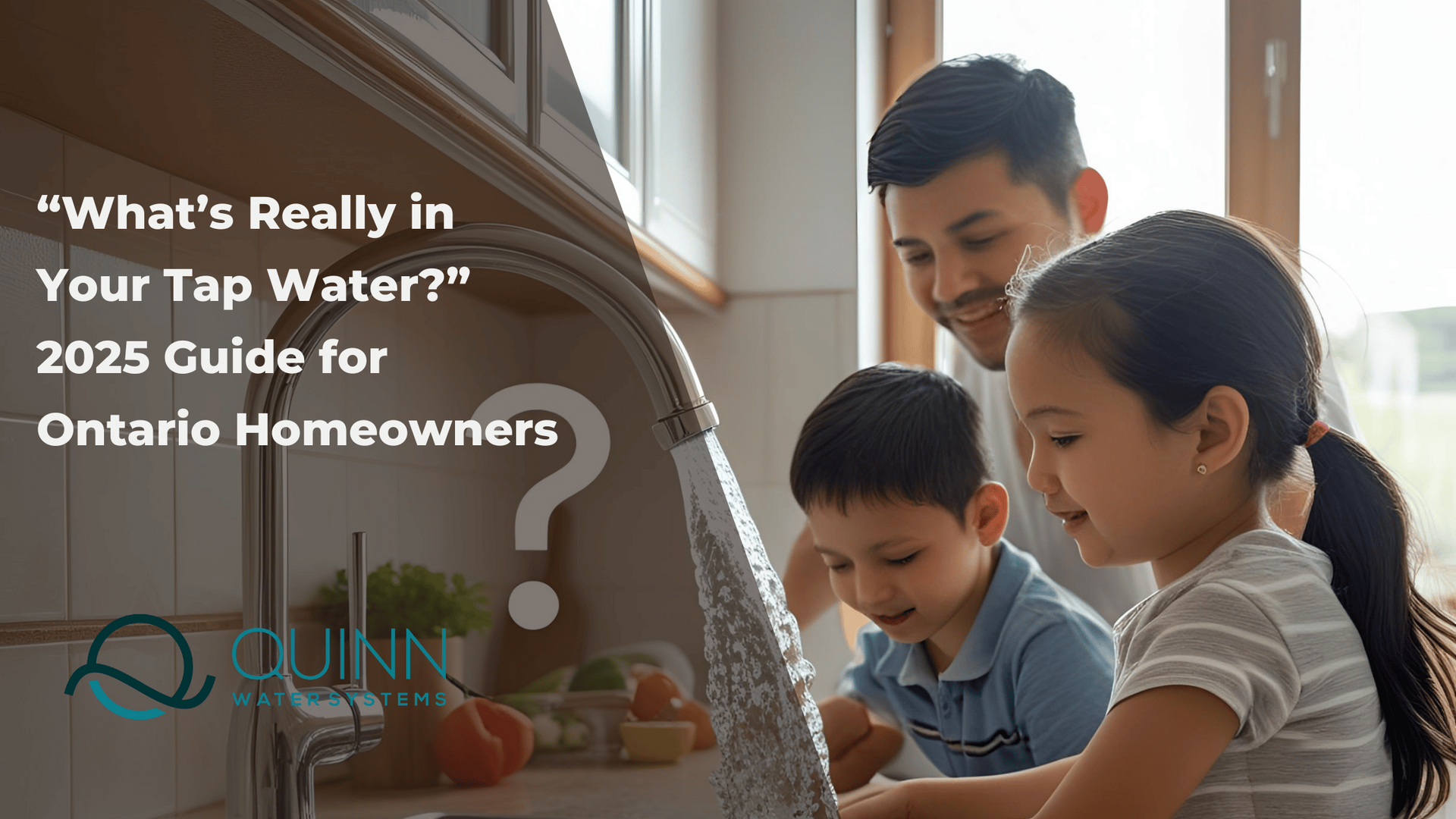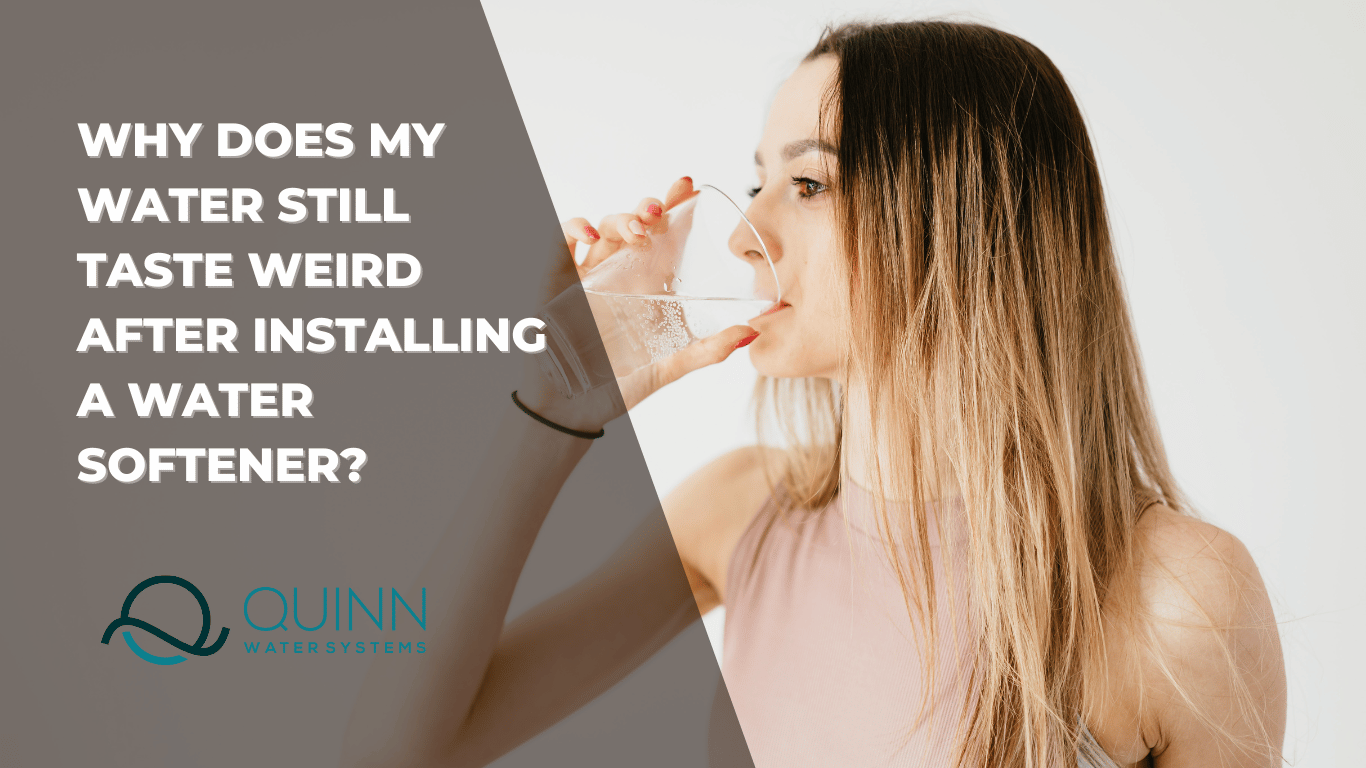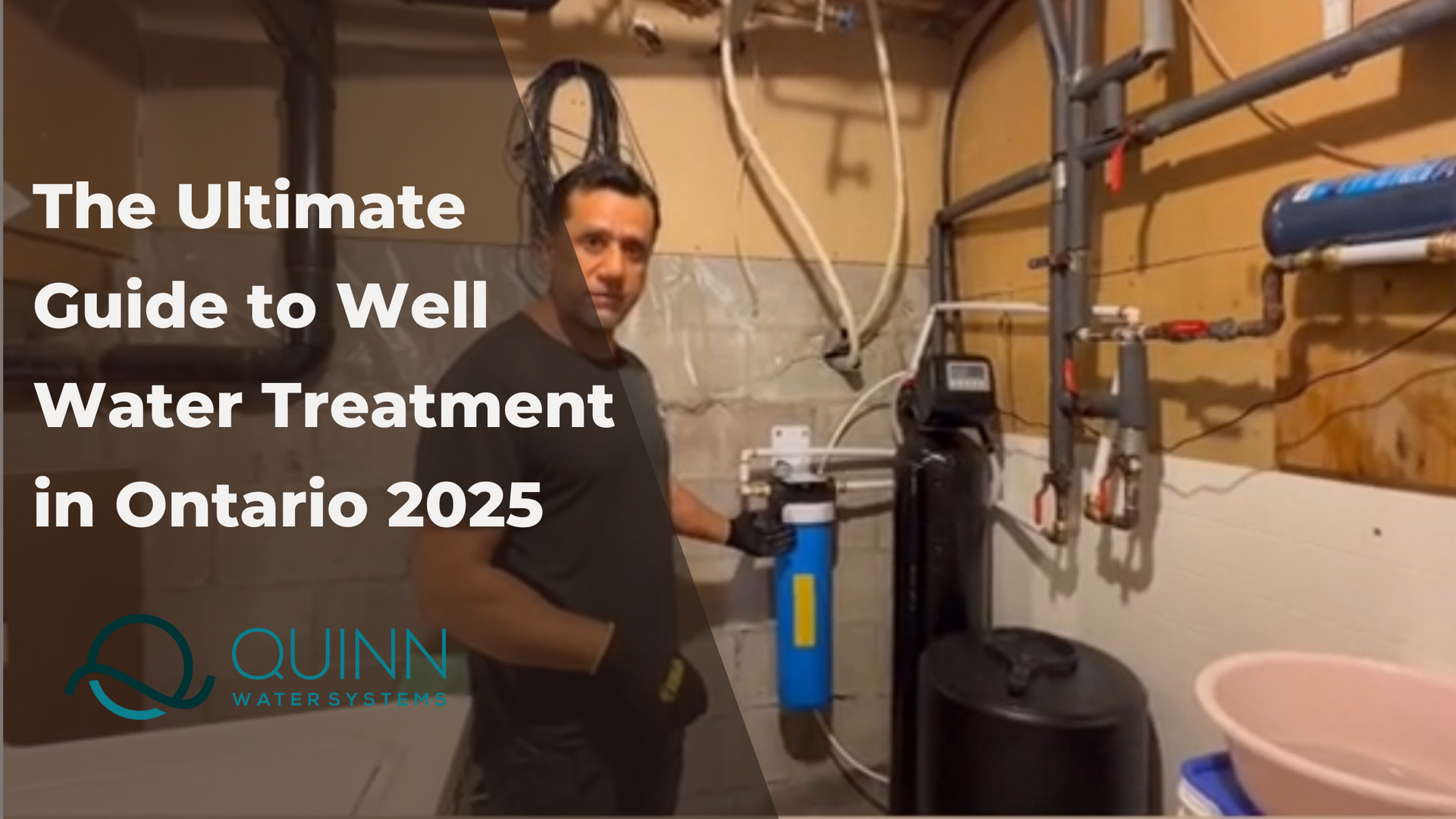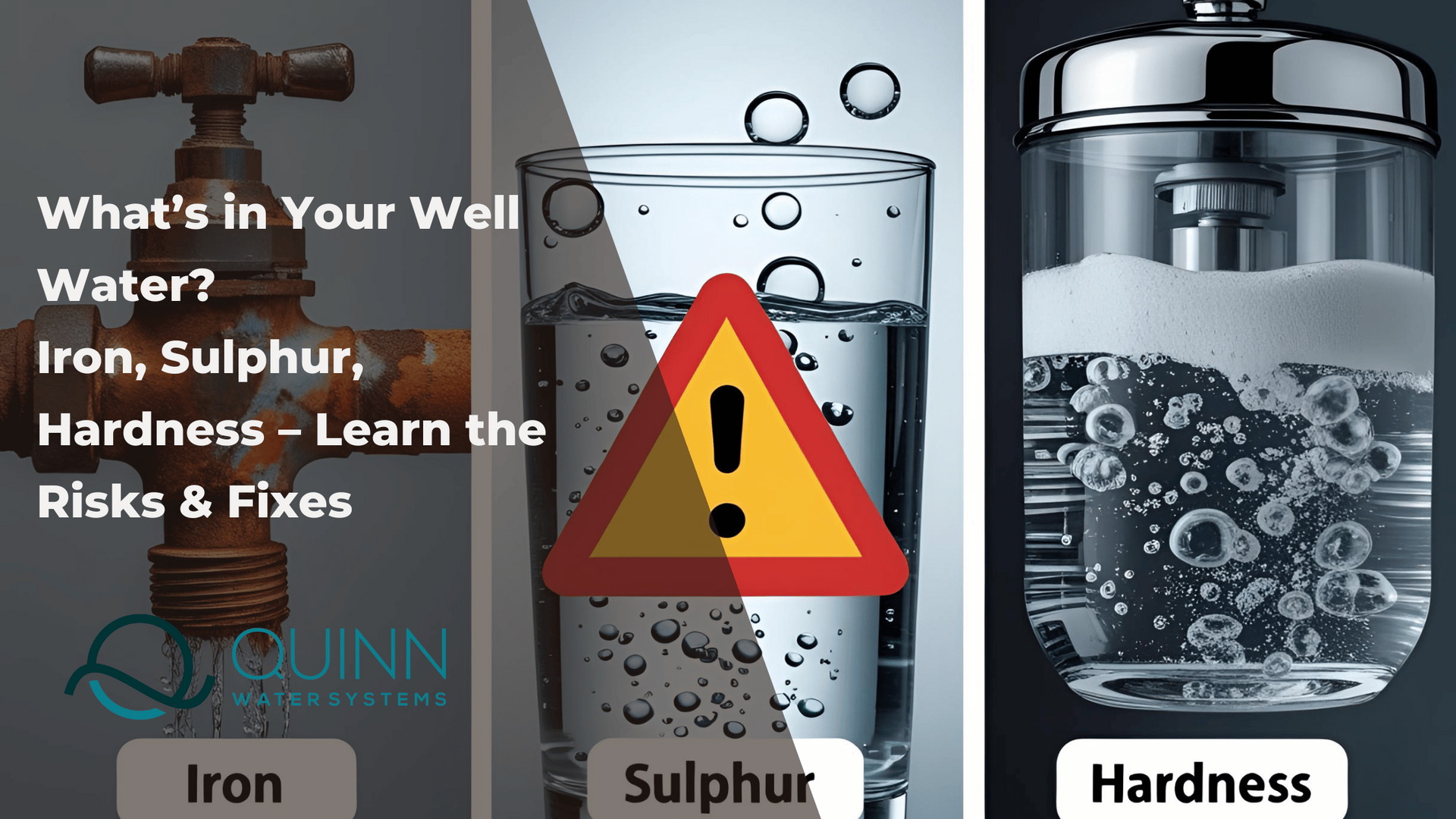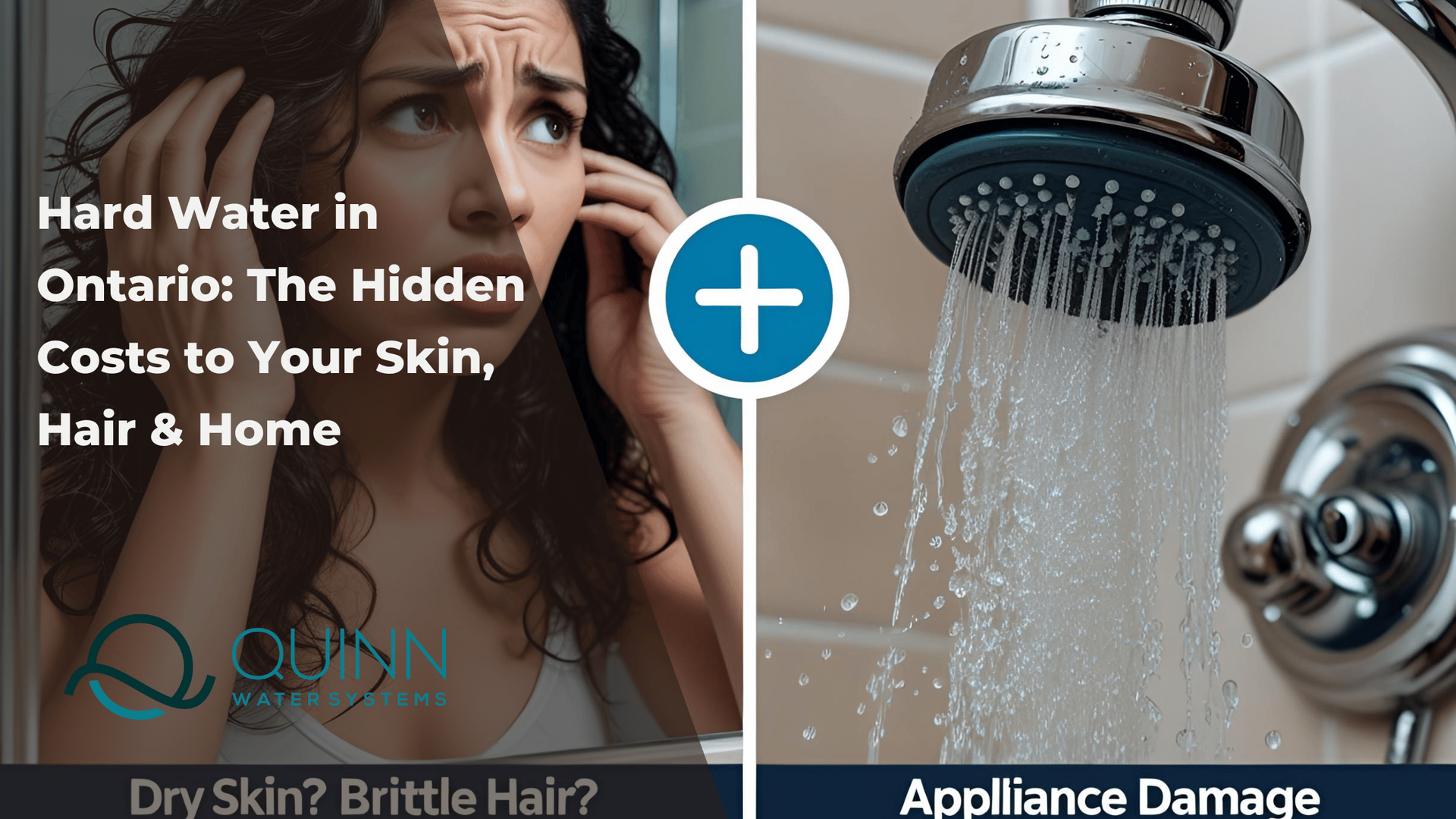Why Guelph Got The Hardest Water In Canada?
Picture this: you turn on your faucet, expecting clear, refreshing water to flow effortlessly. Instead, you're met with a water supply that leaves mineral deposits, affects the taste of your tea, and makes it challenging to achieve that perfect lather when washing your hair. What causes Guelph's water to be notoriously hard?
In this blog post, we will explore the factors that contribute to Guelph's water hardness and shed light on the underlying reasons behind this unique phenomenon. We'll delve into geological formations, aquifers, and other crucial elements that shape the composition of Guelph's water supply.
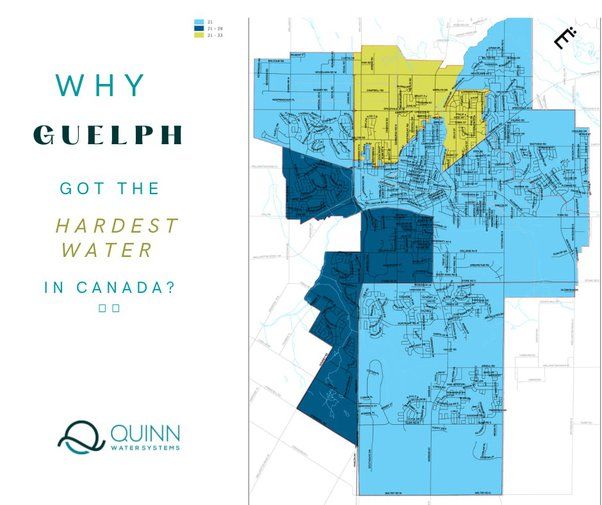
Where does Guelph Water Come From?
According to City of Guelph, Guelph is the largest Canadian city that relies mostly on groundwater, has a unique water supply system that originates from rain and melted snow. This water seeps into the ground through cracks and spaces in the soil and rocks. Guelph is situated above two aquifers, which are underground layers of water-bearing rocks formed by limestone and dolomite. These aquifers extend across Southern Ontario, from the Bruce Peninsula to Niagara Falls.
By drilling wells into these underground layers, Guelph taps into a plentiful supply of high-quality water. This water source caters to individual homes, farms, businesses, and the entire municipality of Guelph. It's a remarkable process that involves harnessing nature's underground reservoirs to ensure a reliable water supply.
Join us as we explore the fascinating world of Guelph's hard water, uncovering the secrets of its groundwater source, and understanding how it connects to the surrounding geological formations. Get ready to dive into the captivating realm beneath the surface, where nature's hidden treasures await.
Note: For precise information on the specific mineral content and hardness of Guelph's water, it's recommended to consult local water authorities and conduct water tests in your area.
What's Water Hardness in Guelph?
When it comes to water hardness, Guelph stands out with significantly higher levels than the norm. The groundwater in the region has a PPM (parts per million) reading of 460 ppm, surpassing typical values. Recommended guidelines have been established for calcium (40–80 ppm) and magnesium (20–30 ppm) levels in drinking water.
In Guelph, the areas with the hardest water are primarily located north of Paisley Road and between Highway 6 and Victoria Road North, as depicted in the provided picture.
It's important to understand the meaning of PPM and TDS (total dissolved solids). In regions where the water is classified as "hard" or slightly saline, the TDS measurement of groundwater can be high. What determines the water's hardness is the composition of minerals that make up the TDS. Interestingly, water can still be considered potable even with TDS levels of up to 1000 ppm, depending on the minerals present.
Furthermore, continuous heavy water extraction in certain areas has led to a gradual displacement of the layer of fresh and clean water. Consequently, deeper and more saline water is gradually replacing it, resulting in changes to the water profile.
Addressing Guelph's Hard Water Woes: How Can You Soften Your Home Water?
Guelph's remarkably hard water can pose challenges for residents. The water hardness levels range from 359-564 mg/litre (21 and 33 gpg), with concentrations surpassing 180 mg/litre considered very hard. If you reside in an area with "fresh" water and an aquifer saturated thickness exceeding 200 feet, it's essential to take action to tackle the effects of hard water.
One effective solution to combat Guelph's hard water is installing a water softener in your home. A Guelph water softener system can help alleviate the negative impacts of hard water, providing a range of benefits for you and your household:
Minimize Scale Buildup:
Hard water often leads to the accumulation of mineral deposits in pipes, appliances, and fixtures, causing scale buildup. A water softener helps reduce these deposits, prolonging the lifespan of your plumbing and appliances.
Enhanced Cleaning Abilities:
Softened water improves the efficiency of soaps and detergents, allowing for more effective cleaning of dishes, clothes, and surfaces. Say goodbye to soap scum and enjoy cleaner, spot-free results.
Softer Skin and Hair:
Hard water can leave your skin feeling dry and your hair dull and lifeless. With a water softener, you'll experience softer skin, smoother hair, and a more luxurious bathing experience.
Energy and Cost Savings:
Softened water enhances the efficiency of water heaters and appliances, reducing energy consumption and potentially lowering utility bills over time. Plus, you'll likely use less soap and detergent, further saving on household expenses.
Investing in a Guelph water softener system tailored to your specific needs can make a significant difference in your daily life. With the help of professional water treatment experts, you can select the right water softening solution for your home and enjoy the benefits of soft, high-quality water.
So, don't let Guelph's hard water hinder your everyday activities. Explore the options of water softening systems available in Guelph and take a step towards a more enjoyable, hassle-free water experience in your home.
Ready to Transform Your Water Experience?
Book a Personalized Water Consultation Today!
Book a Water Assesment
Contact Us
Share this blog
Blog Posts
